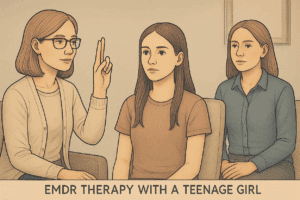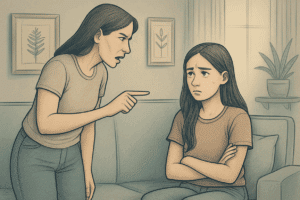Residential treatment for teens refers to a therapeutic program where adolescents receive intensive care and support in a live-in facility. These programs are designed to help teenagers struggling with mental health, behavioral issues, or substance abuse. A crucial aspect of residential treatment for teens is the involvement of family, which can significantly improve the effectiveness of the program. In this article, we will discuss how family support contributes to residential treatment, explore residential family treatment programs, and examine the benefits of family therapy for teenagers.
Understanding Residential Treatment for Teens
Residential treatment for teens offers a structured environment where young individuals can receive round-the-clock care from mental health professionals. These programs typically include therapy, education, and recreational activities to address the root causes of the teen’s difficulties. While the focus is on the teen’s personal growth and recovery, family involvement plays a critical role in long-term success.
Adolescents often face challenges that are deeply intertwined with family dynamics. Whether it’s communication issues, unresolved conflicts, or a lack of support, these problems can hinder progress in residential treatment programs. Involving families in the treatment process helps ensure that teens are supported both during and after their stay at the facility.
The Importance of Family Support in Residential Treatment Programs
Family support is essential in residential treatment for teens because it provides emotional stability and continuity. When families are involved in the treatment process, teens feel more secure, knowing that their loved ones are there to help them. This support can improve the teen’s overall outlook and encourage them to stay committed to their recovery.
In many cases, residential treatment programs for teens involve family therapy, where families are encouraged to participate in therapy sessions with their child. This approach helps address any underlying issues that may be contributing to the teen’s struggles. Residential family treatment programs often integrate family members into the healing process, making them an active part of the solution.
Residential Family Treatment Programs
Residential family treatment programs are designed to involve the entire family in the healing process. These programs recognize that treating the individual without addressing the family dynamics may not lead to long-lasting change. Family members play a key role in the recovery journey by learning how to communicate better, resolve conflicts, and provide the necessary support for their loved ones.
In residential family treatment programs, families participate in therapy sessions alongside their child. These sessions are guided by trained therapists who help families explore their relationships, identify unhealthy patterns, and develop strategies to improve communication. The goal is to create a supportive home environment that promotes the teen’s recovery even after they leave the treatment facility.
Family involvement also helps teens feel less isolated. Knowing that their family is working through the process with them can provide a sense of belonging and motivation. Residential family treatment programs help bridge the gap between the controlled environment of the treatment center and the challenges of returning home, making the transition smoother for both the teen and the family.
Family Therapy for Teenagers
Family therapy for teenagers is an essential part of the treatment process in residential programs. This form of therapy focuses on improving communication, resolving conflicts, and strengthening relationships within the family unit. For many teens, family dynamics play a significant role in their mental health and behavior, and addressing these issues in therapy can lead to more effective treatment outcomes.
Family therapy for teenagers helps to uncover any underlying problems that may have contributed to the teen’s struggles, such as unresolved trauma, poor communication, or lack of boundaries. By addressing these issues in a safe and supportive environment, families can learn healthier ways to interact with one another. This form of therapy also provides parents with tools to support their child’s recovery after the residential treatment program ends.
Family therapy sessions may include discussions about the teen’s experiences, emotions, and behavior. Therapists guide the family in finding solutions to problems and help parents understand how they can best support their child during this critical time. Family therapy for teenagers is not just about helping the teen; it is about creating a healthier family dynamic that fosters long-term success.
The Benefits of Family Involvement in Residential Treatment
There are several benefits to involving family in residential treatment for teens:
- Improved Communication: Family therapy encourages open communication, helping both teens and parents express their thoughts and feelings more effectively. This can lead to stronger, more supportive relationships.
- Long-Term Recovery: When families are involved, the lessons learned in therapy are more likely to be reinforced at home. This can prevent relapse and ensure that the progress made during the program continues after treatment.
- Better Understanding: Family members gain a better understanding of the teen’s mental health issues and how to provide support. This understanding can reduce frustration and miscommunication between parents and their child.
- Stronger Support Network: Teens are more likely to succeed when they have a strong support network at home. Family involvement ensures that teens feel supported and encouraged throughout their recovery journey.
- Reduced Stress for Teens: Knowing that their family is involved in their recovery can reduce feelings of isolation and stress for teens. This support helps them feel more confident in their ability to overcome their challenges.
Challenges of Family Involvement
While family involvement in residential treatment for teens has numerous benefits, it can also present challenges. Some families may struggle with their own issues, such as unresolved conflicts or mental health problems, that make it difficult to provide the necessary support. In such cases, residential family treatment programs can help address these issues, offering therapy and support for the entire family.
Additionally, families may feel overwhelmed by the demands of participating in therapy and making changes to their own behavior. It is important for families to approach the process with an open mind and a willingness to learn. Residential treatment programs provide resources and support to help families navigate these challenges.
Conclusion
Family support is a vital component of residential treatment for teens. By involving families in the treatment process, residential family treatment programs help create a supportive environment that fosters long-term success. Family therapy for teenagers plays a crucial role in improving communication, resolving conflicts, and building stronger relationships. When families work together, the road to recovery becomes smoother for everyone involved.
For more information on how residential family treatment programs can support your teen, visit Mission Prep today.


















